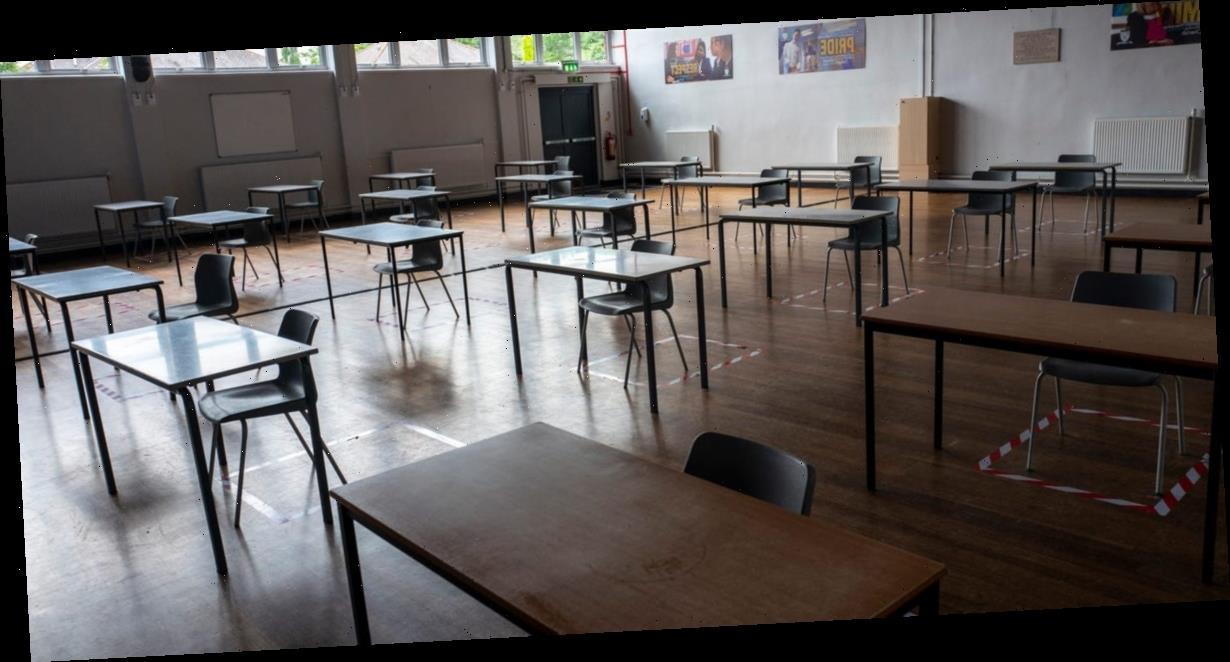- A new paper has said that closing UK schools during lockdown led to more COVID-19 deaths than if they had stayed open.
- The paper, by Professor Graeme Ackland, was published in the British Medical Journal on Wednesday and is a re-analysis of a model published by Imperial College London in March.
- The Imperial model prompted the UK to enforce a lockdown, in line with many other countries facing outbreaks.
- But, Ackland argues, some of its provisions were counter-productive. He claims that closings schools and universities in particular likely led to "more deaths compared with the equivalent scenario without the closures."
- Visit Business Insider's homepage for more stories.
A new scientific paper claims that the UK's decision to close schools and universities in March as part of its lockdown strategy resulted in more COVID-19 deaths than if they stayed open.
The peer-reviewed paper, was written by Graeme Ackland, professor of computer simulation at The University of Edinburgh, was published in the British Medical Journal on Wednesday.
It is a re-analysis of a model published by Imperial College London on March 16.
The Imperial model was hugely significant. It prompted the UK government to abandon its strategy of herd immunity, and impose a series of lockdown measures, including the closure of schools. The paper warned the UK was set for 510,000 deaths in the absence of such action.
In the course of 10 simulations, Ackland said the addition of school closures to other lockdown variables increased the number of deaths.
His argument is that mitigation strategies should focus on keeping the virus from older, more vulnerable people, and not on preventing the spread in settings where most people are young.
"Adding school and university closures to case isolation, household quarantine, and social distancing of over 70s would lead to more deaths compared with the equivalent scenario without the closures of schools and universities," he wrote.
"In assessing the impact of school closures, UK policy advice has concentrated on reducing total number of cases and not the number of deaths."
"Strategies that minimise deaths involve the infected fraction primarily being in the low risk younger age groups — for example, focusing stricter social distancing measures on care homes where people are likely to die rather than schools where they are not."
Speaking about his paper on the BBC's "Today" radio show on Thursday morning, Ackland said: "It's incredibly dangerous for older people and much less dangerous for younger people."
"So what happened if you lock down everybody, the virus is spread amongst everybody, whereas if you leave the virus to spread amongst those who aren't actually going to die, then by the end of the pandemic, the deaths are more concentrated in the older group."
Ackland said that the Imperial model, headed by Professor Neil Ferguson, was overall accurate in its predictions.
"It did remarkably well. It gives you the first wave peaking in April, it predicted that about 10% of people would get infected, which we now know is true from the antibody studies, it predicted there would be a second wave growing more slowly as the restrictions were gradually lifted, which is what we see now," he sid.
"We wanted to test what the long-tem predictions of the model were and see whether they stack up against what actually happened."
The Imperial model was released amid a high level of scrutiny, and was criticized at the time.
On Thursday, a spokesperson for Imperial said in a statement regarding Ackerman's findings that: "This provides further independent confirmation that Imperial's modelling in March was robust, reproducible and sound in its conclusions."
In the press release, Imperial said that: "Imperial College's Report 9, which was one of several pieces of modelling to inform the UK government ahead of lockdown measures in March, has been subject to intense scrutiny, and has held up to expert analysis."
Do you have a personal experience with the coronavirus you’d like to share? Or a tip on how your town or community is handling the pandemic? Please email [email protected] and tell us your story.
Get the latest coronavirus business & economic impact analysis from Business Insider Intelligence on how COVID-19 is affecting industries.
Source: Read Full Article
